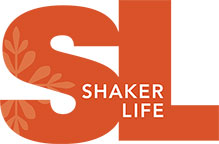Insight Clinical Trials, an independent research facility in Shaker, conducts studies on therapies that target dementia and Alzheimer’s.
By Diana Simeon

More than five million Americans suffer from Alzheimer’s, a devastating form of dementia that robs people of the ability to perform even the simplest task, not to mention almost all their memories.
It’s the sixth leading cause of death in the United States. Most people with Alzheimer’s are over age 65, though about five percent of patients are in their 40s and 50s. Available medications don’t stop the disease’s progression, only ease its symptoms for a limited time.
It’s the desire to find an effective treatment for the disease that motivates Dr. Deborah Gould. Gould is a geriatric psychiatrist and principal investigator for Insight Clinical Trials, an independent research facility, based in Shaker on Warrensville Center Road, that conducts research studies for therapies that target dementia and Alzheimer’s.
“The purpose is to find a breakthrough for dementia,” says Gould, a longtime Shaker resident. “We finally understand the mechanisms,” she explains, “so now we need medicines aimed at attacking those issues.”
Researchers now understand that one of the main mechanisms of Alzheimer’s is the accumulation of a protein called beta-amyloid in the brain. Specifically, beta-amyloid wreaks havoc on the neurons of the brain, eventually causing them to die. As this process spreads, it causes the signs and symptoms of Alzheimer’s.
For example, the memory loss experienced by Alzheimer’s patients – a common sign of the disease is forgetting recently learned information – is likely a result of the beta-amyloid’s impact on the hippocampus, which helps form new memories.
“Like any other illness, Alzheimer’s has to be addressed early. The whole idea is to prevent the progression, so you want to catch it early enough to do that.”
“Our bodies produce beta-amyloid and everyone has it,” says Gould. But researchers are still trying to understand why some people go on to develop Alzheimer’s, while others do not. Meanwhile, beta-amyloid is also implicated in other forms of dementia.
At Insight Clinical Trials, research on Alzheimer’s breaks into two main categories: “We try to attack the production of beta-amyloid or remove the betaamyloid,” says Gould. In the former, participants receive monthly intra-venous infusions of antibodies directed against beta-amyloid; in the latter, participants take what are called BACE inhibitors. “This is to inhibit an enzyme that is involved in the production and deposit of the beta-amyloid in the brain,” explains Gould.
A Life in Shaker
Gould grew up in Shaker’s Lomond neighborhood, graduated from Shaker Schools, and went to Vassar College.
After Vassar, she returned to Cleveland to study medicine at Case Western Reserve University. That’s where she met her husband, Dr. Arthur Zinn, a clinical geneticist. The couple settled in the city’s Sussex neighborhood and raised a family. Their children also graduated from Shaker Schools, and Gould wouldn’t have had it any other way.
“Shaker Schools gave me everything. They gave me all of the skills I needed to be successful. And 30 years later, they did the same for my kids,” she says. Gould recently celebrated her 50th Reunion at Shaker Heights High School.

Gould puts trial enrollees through an extensive evaluation.
Gould trained as a psychiatrist. She did her residency at University Hospitals and as a clinician found herself working with many elderly patients. “That is how I first got interested in dementia and Alzheimer’s,” she says.
She spent many years at UH, eventually becoming head of the geriatric psychiatry unit. After leaving UH, Gould took a position as director of the geriatric program at Connections Health Wellness Advocacy (formerly Northeast Ohio Health Services). In 2006, Gould’s longtime colleague, Elisa Poggi, invited her to join Insight, which Poggi, a social worker, had founded the same year.
Providing Access to Cutting-Edge Treatments
At Insight, “all medications are from various pharmaceutical companies that include Eli Lilly and Co., Axovant, Neurocrine, Roche, Merck, and many others,” says Poggi.
“At the initial consultation, the studies that meet the needs of the individual are explained to them. This includes written information on the study and the medication that they can take home and share with their significant others and physicians.”
Insight is selective about the studies the company takes on. “We take a close look at what a new drug or medication is trying to do and decide if it makes sense in terms of the science,” Gould explains. Gould has focused primarily on what are called Phase 3 clinical trials, which is the final step a pharmaceutical company must take before receiving FDA approval. In these kinds of studies, patients have the opportunity to get early access to what may eventually prove to be a breakthrough treatment for their condition. At Insight, the majority of participants are in the early stages of cognitive impairment.
“The purpose is to find a breakthrough for dementia,” says Gould, a longtime Shaker resident. “We finally understand the mechanisms,” she explains, “so now we need medicines aimed at attacking those issues.”
“Like any other illness, Alzheimer’s has to be addressed early. The whole idea is to prevent the progression, so you want to catch it early enough to do that,” Gould says. “So, we do a lot of studies that have to do with mild cognitive impairment, which are the more subtle changes that occur before the actual diagnosis of Alzheimer’s is made.”
Most of Insight’s patients are self-referred. They find out about the trials from doing online research, reading about it in print, from a friend or relative, or from a doctor. Some have heard Gould or Poggi speaking somewhere. And some are referred from the Foley ElderHealth Center of University Hospitals.
Gould puts trial enrollees through an extensive evaluation, which includes a PET (positron emission tomography) scan. A PET scan, which costs about $3,000, is now the only way to see the accumulation of beta-amyloid in the brain, yet it isn’t routinely prescribed by doctors as it’s not yet covered by Medicare. For trial participants, it’s free.
“If we know someone has the beta-amyloid, we are going to be able to address it much earlier – hopefully, with some of the medications we’re trying to find now.”
In addition, at the end of a trial – they last anywhere from six months to two years – all participants are able to receive the medication and keep taking it free until it hits the market, a process that can take from five to seven years.
For Alzheimer’s patients, who live on average eight years after diagnosis, that’s time they don’t have to wait for potentially effective treatments to be officially approved.
For Gould, the work goes on, which also includes speaking in the community about Alzheimer’s and age-related memory loss. “We want to educate people and help them understand that even if there is not now a solution to this problem, some day there may be.”
Originally published in Shaker Life, Winter 2017.



